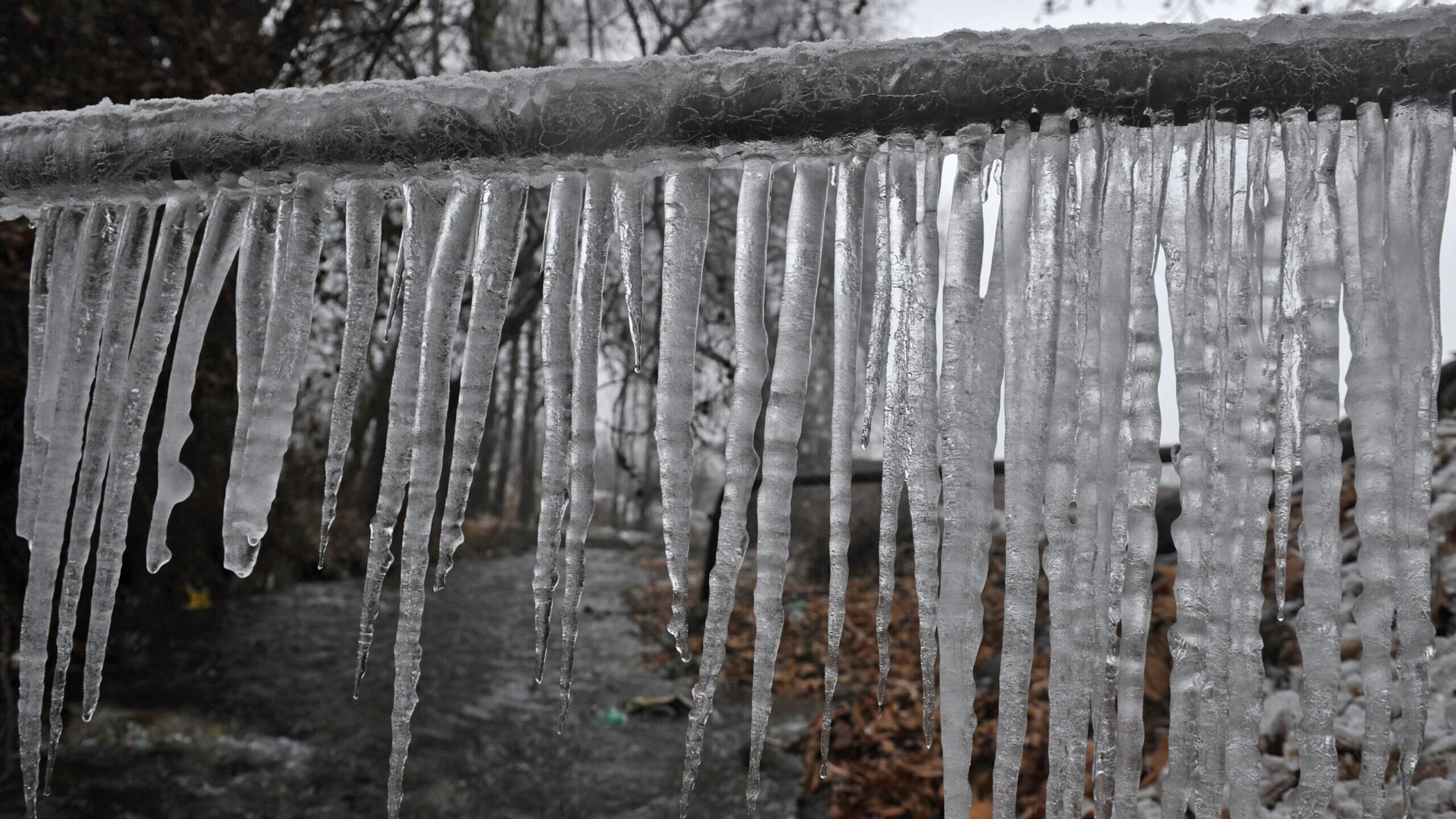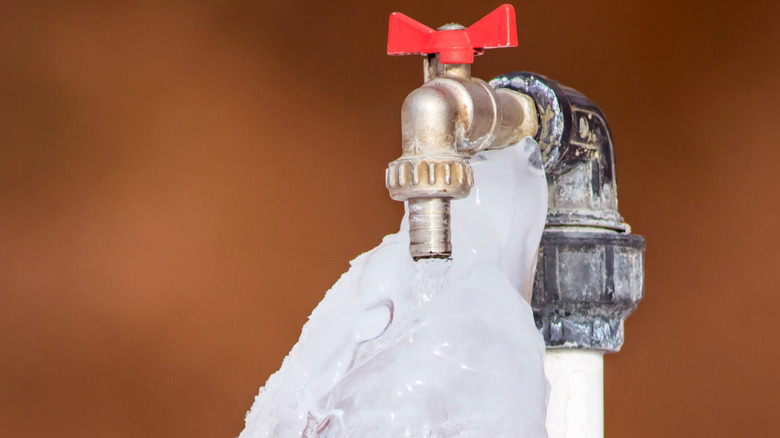Tips to Defend Pipes from Cold Weather: Professional Advice
Tips to Defend Pipes from Cold Weather: Professional Advice
Blog Article
We have come across this great article pertaining to Preventing and dealing with frozen pipes below on the web and thought it made good sense to relate it with you on my blog.

Winter can damage your plumbing, especially by freezing pipelines. Here's how to avoid it from occurring and what to do if it does.
Intro
As temperatures decline, the danger of frozen pipes boosts, possibly resulting in expensive repair work and water damages. Comprehending exactly how to stop frozen pipelines is essential for property owners in cold environments.
Understanding Frozen Pipes
What triggers pipes to freeze?
Pipes freeze when exposed to temperatures below 32 ° F (0 ° C) for expanded durations. As water inside the pipelines freezes, it broadens, putting pressure on the pipe wall surfaces and possibly triggering them to rupture.
Dangers and damages
Icy pipelines can cause water system interruptions, building damage, and costly repair work. Ruptured pipelines can flood homes and create substantial structural damages.
Signs of Frozen Pipes
Determining icy pipes early can avoid them from bursting.
Exactly how to recognize frozen pipelines
Try to find decreased water circulation from taps, uncommon odors or noises from pipes, and visible frost on revealed pipes.
Avoidance Tips
Insulating at risk pipelines
Cover pipelines in insulation sleeves or use warmth tape to secure them from freezing temperature levels. Concentrate on pipes in unheated or outside areas of the home.
Home heating methods
Maintain interior areas effectively heated, particularly areas with plumbing. Open cabinet doors to permit cozy air to distribute around pipes under sinks.
Safeguarding Outdoor Pipes
Yard hose pipes and exterior faucets
Disconnect and drain yard pipes prior to wintertime. Install frost-proof faucets or cover outside taps with insulated caps.
What to Do If Your Pipes Freeze
Immediate actions to take
If you think icy pipes, keep taps open to soothe pressure as the ice thaws. Use a hairdryer or towels taken in hot water to thaw pipes gradually.
Long-Term Solutions
Structural changes
Take into consideration rerouting pipes far from exterior walls or unheated locations. Include added insulation to attic rooms, cellars, and crawl spaces.
Updating insulation
Purchase top quality insulation for pipes, attic rooms, and wall surfaces. Appropriate insulation assists preserve consistent temperatures and decreases the risk of icy pipes.
Conclusion
Preventing icy pipes calls for positive steps and quick responses. By comprehending the reasons, signs, and safety nets, property owners can protect their pipes throughout cold weather.
Helpful Tips to Prevent Frozen Pipes this Winter
UNDERSTANDING THE BASICS: WHY PIPES FREEZE AND WHY IT’S A PROBLEM
Water freezing inside pipes is common during the winter months, but understanding why pipes freeze, and the potential problems it can cause is crucial in preventing such incidents. This section will delve into the basics of why pipes freeze and the associated problems that may arise.
THE SCIENCE BEHIND FROZEN PIPES
When water reaches freezing temperatures, it undergoes a physical transformation and solidifies into ice. This expansion of water as it freezes is the primary reason pipes can burst. As the water inside the pipe freezes, it expands, creating immense pressure on the walls. If the pressure becomes too great, the pipe can crack or rupture, leading to leaks and water damage.
FACTORS THAT CONTRIBUTE TO PIPE FREEZING
Low Temperatures: Extremely cold weather, especially below freezing, increases the risk of pipes freezing. Uninsulated or Poorly Insulated Pipes: Pipes located in unheated areas, such as basements, crawl spaces, or attics, are more prone to freezing. Insufficient insulation or lack of insulation altogether exacerbates the problem. Exterior Wall Exposure: Pipes running along exterior walls are susceptible to freezing as they encounter colder temperatures outside. Lack of Heating or Temperature Regulation: Inadequate heating or inconsistent temperature control in your home can contribute to frozen pipes. PROBLEMS CAUSED BY FROZEN PIPES
- Pipe Bursting: As mentioned earlier, the expansion of water as it freezes can cause pipes to burst, resulting in significant water damage.
- Water Damage: When pipes burst, it can lead to flooding and water damage to your property, including walls, ceilings, flooring, and personal belongings.
- Structural Damage: Prolonged exposure to water from burst pipes can compromise the structural integrity of your home, leading to costly repairs.
- Mold and Mildew Growth: Excess moisture from water damage can create a favorable environment for mold and mildew growth, posing health risks to occupants.
- Disrupted Water Supply: Frozen pipes can also result in a complete or partial loss of water supply until the issue is resolved.
WHY CERTAIN PIPES ARE MORE PRONE TO FREEZING
- Location: Pipes located in unheated or poorly insulated areas, such as basements, crawl spaces, attics, or exterior walls, are at higher risk of freezing.
- Exterior Pipes: Outdoor pipes, such as those used for irrigation or exposed plumbing, are particularly vulnerable to freezing as they are directly exposed to the elements.
- Supply Lines: Pipes that carry water from the main water supply into your home, including the main water line, are critical to protect as freezing in these lines can affect your entire plumbing system.
- Underground Pipes: Pipes buried underground, such as those connected to sprinkler systems or outdoor faucets, can be susceptible to freezing if not properly insulated.
https://busybusy.com/blog/helpful-tips-to-prevent-frozen-pipes-this-winter/

Do you enjoy more info about Preventing and dealing with frozen pipes? Put feedback down below. We'd be glad to see your suggestions about this blog post. In hopes that you visit us again soon. Those who enjoyed our page kindly do not forget to share it. I enjoy your readership.
Book Maintenance Report this page